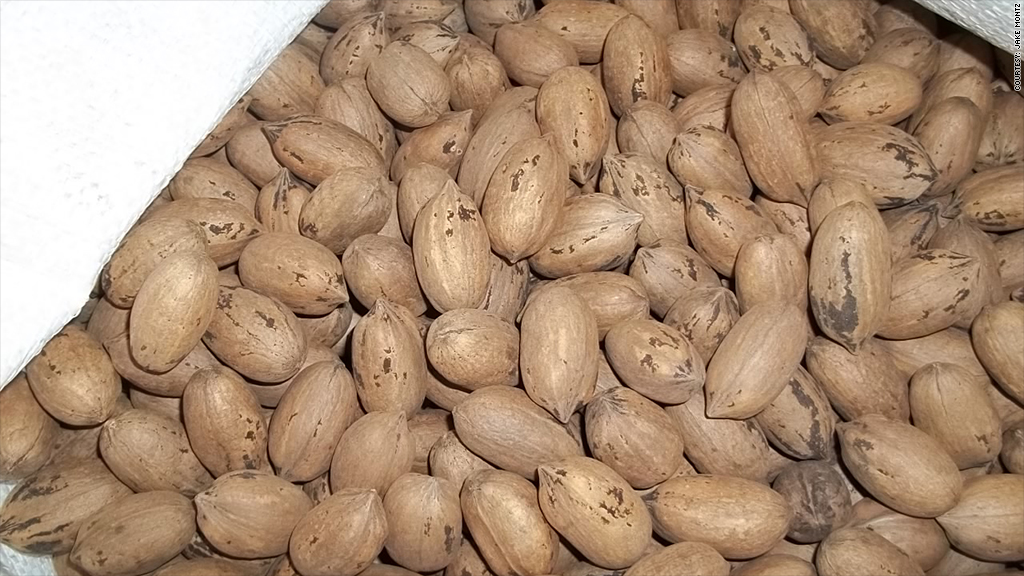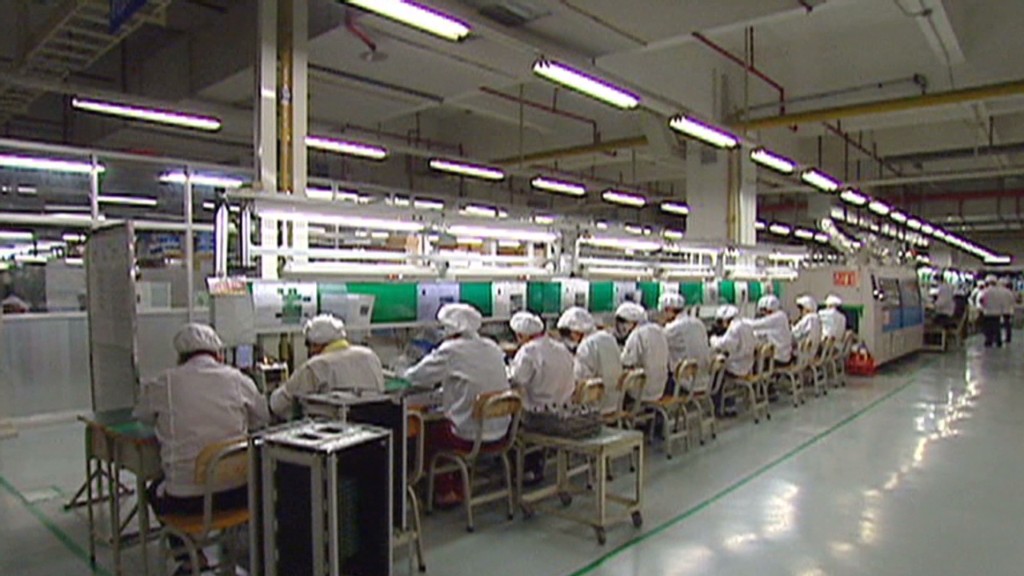
The Chinese are developing a thing for U.S. pecans.
Attracted by their perceived health benefits, the Chinese are gobbling up pecans from the United States in record amounts. Last year saw a staggering 64% jump in pecan exports to Hong Kong, according to the latest numbers from the Southern United States Trade Association.
The trend started a few years back. In 2007, the price of walnuts -- previously a favorite in China -- spiked. So the Chinese went searching for a more affordable nut. They found the U.S. pecan, which accounts for 80% of worldwide supply.
At first, Chinese buyers had a hard time securing supply, as pecan growers had long relationships with processors here in the United States. So they did what anyone wanting to make a splash in a new market does -- they brought cash.
"They literally took suitcases of money with them into the orchards," said Daniel Zedan, president of Nature's Finest Foods, an Illinois-based broker and marketer of tree nuts.
Zedan said the Chinese offered to pay 25% cash up front for a whole year's worth of the choicest crop, with the remaining 75% payable when the nuts arrived in Hong Kong harbor.
Related: China's growth to hit 8% in 2013
The strategy worked. Last year over 20% of U.S. production went to China, said Zedan -- exports with a cash value of over $140 million, according to SUSTA. Next year Zedan expects China to buy nearly a third of the country's pecans.
For pecan growers -- found in every state south of the Mason-Dixon Line but especially concentrated in Georgia, Texas and New Mexico -- this is fantastic news.
"China is looking at the highest-end pecan, and they are paying a premium for it," said Jake Montz, orchard manager at Montz Pecans in Wichita Falls, Texas. "If I want to plant more orchards, I know I can make money."
Related: Independent farms rake in millions
Montz said he currently ships about 10% of his crop to China. But he's hoping aggressive marketing efforts currently underway by groups like SUSTA and the National Pecan Growers Council will open up more opportunities in places such as India or Indonesia.
China's pecan appetite has also given Montz and other growers another avenue to sell their product. Previously, it was mostly U.S. based pecan processors which bought the nuts. The processors would then shell the pecan and sell it to U.S. food companies, which use them whole or in part in things like baked goods, ice cream and candy.

But the Chinese want them in the shell. Once in China, they crack open the shell, roast it in a variety of different flavors, then sell it in bags to be deshelled by the consumer, much like a pistachio. This is why the Chinese are paying a premium for the whole nut.
But this new market is keeping the price of pecans high, both for U.S. consumers who buy the nut whole and U.S. and European food companies that use them as an ingredient.
Several U.S. food makers have chosen to cut back on the use of pecans, Zedan said, either curtailing production of things like butter pecan ice cream or substituting in other nuts.
"If you can buy pecans at $6 a pound or walnuts at $3, what are you going to put in your sticky buns," he said.


